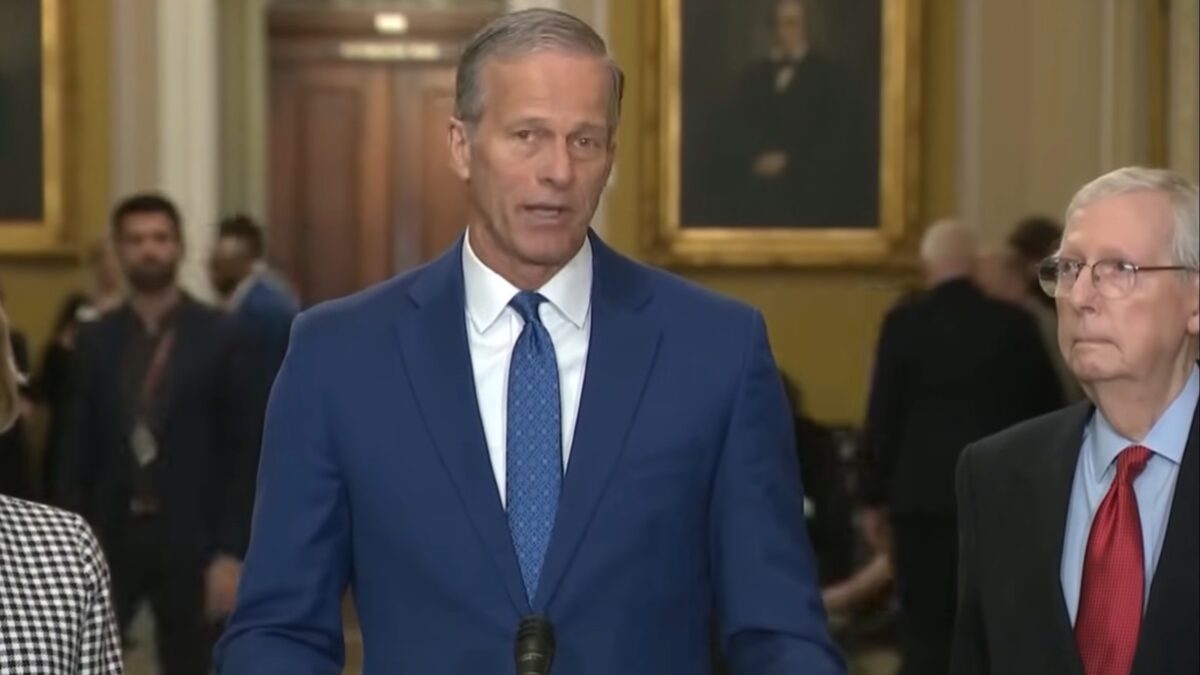
Georgia’s new senators, Jon Ossoff and Raphael Warnock, are getting sworn in the same day the nation’s new president is giving the Democrats effective control of the 50-50 Senate. After a Capitol riot aimed at stopping the certification of Joe Biden’s electoral count, then an impeachment and scorched-earth debate on political extremism, the Peach State’s Senate runoffs of just two weeks ago seem like old news.
There is, however, a common thread you can draw from Donald Trump’s actions in this election to outcomes that hurt the Republican Party, the conservative movement, and, more importantly, the country. Yes, other people were involved. Incumbents David Perdue and Kelly Loeffler were bad candidates. Sens. Ted Cruz and Josh Hawley — whom I know and supported in the past — made cynical objections to state electors to fundraise and position themselves ahead of the 2024 presidential primaries.
But Trump further weakened the Georgia senators, and the Cruz-Hawley cabal was trying to curry favor with Trump voters, who were, in turn, taking their cues from the bully pulpit. And it was the president himself who spent two months laying conspiratorial kindling before sparking the mob on the National Mall — later tweeting that he loved the Capitol invaders and, in a video statement telling them to go home still speaking of “a landslide election that was stolen from us.”
It’s too early to tell the enduring significance of Jan. 6, but Jan. 5 is likely a bigger short-term blow to limited government, individual liberty, and free markets, all things Republicans used to believe in.
Georgia’s Massive Overall Turnout
After a November election where the GOP beat all expectations — Trump himself nearly pulled off another inside straight — we were on the verge of the best check on out-of-control federal power: divided government.
With the smallest Democratic House majority since 1942 and an incoming president whose only mandate is not to be his predecessor, all that was left to achieve gridlock, sweet gridlock, was for Republican incumbents to win one of two Senate runoffs. Both of these bizarrely late (after the start of the new Congress) races were of course in Georgia, which last voted Democratic state-wide in 2000 — and that was for Sen. Zell Miller, who ended up giving a keynote address at the 2004 Republican National Convention.
Given Georgia’s voting history, the fact that the Republican vote tends to drop off less in runoffs, and that Perdue nearly won his race outright in November — coming short of 50 percent by fewer than 14,000 votes — this seemed almost a pro forma exercise en route to re-crowning Mitch McConnell king of the Senate and thus ensuring that nothing would come out of Congress for another two years. But a funny thing happened on the way to parliamentary purgatory.
About 4.5 million people voted in the runoffs, which is about 90 percent of the turnout in November, an amazing number for a special election (the state’s previous Senate runoff achieved not much more than half of the turnout from that year’s presidential election). Perdue managed to turn out 89 percent of his voters for the runoff, while Ossoff was over 94 percent. Why is the overall number still at 90 percent? Well, because most of Libertarian Shane Hazel’s voters seem to have stayed home.
Moreover, both Perdue and Loeffler lost by multiples of Biden’s winning margin of 11,780 votes. So what happened between Nov. 3 and Jan. 5 to cause this fiasco?
Candidates, Conspiracies, and COVID-19
Well, one thing we can discount is the state becoming bluer, particularly with population growth in metro Atlanta. That trend is real, but despite reports of wokesters taking the midnight train to Georgia notwithstanding, it didn’t make a difference in two months.
No, the explanation comes down to three things:
- The aforementioned weakness of the candidates, particularly billionaire Loeffler’s woman-of-the-people schtick (we’ll never see her in jeans and a ballcap again).
- The depressed Republican turnout from Lin Wood/Sidney Powell conspiracy theories, urging people to refrain from voting in protest.
- Trump stepping on the COVID spending package negotiated by his own treasury secretary to demand $2,000 instead of $600 checks (an idea prominently identified with Hawley and, of all people, Bernie Sanders). Loeffler and especially Perdue could’ve survived two of those three, but not all of them.
The incumbent Republicans were already “damaged goods” due to insider-trading scandals and a general perception that they were out of touch. Ironically, Gov. Brian Kemp, whom Trump identified as part of a recalcitrant GOP establishment, has appointed the milquetoast Loeffler to a vacant seat to appeal to suburban women.
It was the perfect pick — for the Bush years. Instead, to make the runoff over House Judiciary Committee ranking member Doug Collins, Loeffler had to out-populist him. Needless to say, this did not help her authenticity problem.
More importantly, however, if Trump had dialed down his post-election mania just a smidge, the GOP message of painting Ossoff as an entitled nobody and Warnock as a radical would’ve had a chance to resonate.
If Trump had accepted his loss, if he had even just refrained from making his infamous phone call to Georgia Secretary of State Brad Raffensperger, Republicans could’ve more easily made the runoffs about preventing unified Democratic control of Washington and drawn back more Perdue/Loeffler/Collins voters (of whom, again, there were more in November than those who voted for Ossoff or Warnock).
At the same time, Trump’s half-hearted attempt to get out the vote — his election-eve rally seemed uncharacteristically low-energy — clashed with his enthusiasm for proclaiming that state GOP officials were complicit in stealing his win. So the president somehow managed to depress both Trump-wary Republicans and base voters.
Finally, blowing up the laboriously negotiated COVID relief package during the holidays fomented a split within Republican ranks just as Democrats were going at each other for having gotten the shorter end of the bargain. It put Loeffler and Perdue on the defensive, as Ossoff and Warnock campaigned on needing a Democratic Senate to get people bigger checks. Once Trump made the demand, it may have been a rare tactical error by McConnell not to let the bigger stimulus happen — now we’ll get them anyway — but the damage had been done.
The GOP Outlook in Georgia
As for the future, Atlanta-based conservative commentator Erick Erickson tweeted the morning after the runoffs that “the problem for the GOP” is that “College-educated white voters and suburban women drifted back to the GOP, but Trump voters stayed home.” The party as currently positioned can’t win without both, but “those groups hate each other.”
The question of whether the GOP big tent can hold both suburbanites and the working class may depend in large part on how crazy the Democrats get, but there’s plenty of Republican crazy to go around too.
That is, even if Trump’s actions weren’t the reason that an outcome-determinative portion of his voters declined to show up for the runoff, the GOP faces another structural issue. As the National Review’s Jim Geraghty pointed out:
If [Wood and Powell] can just show up, grab a microphone, and convince diehard Trump fans to not vote … and outweigh the voice of the president, urging them to vote … then diehard Trump fans are not a reliable base of support for the Republican Party.
Some analysts might insist that instead, it means the GOP needs to complete its pivot to catering to Trump voters, but, to quote Geraghty again, “Why should we adapt to appeal to a demographic that won’t show up to vote if two lawyers come along with a conspiracy theory involving Venezuelans, the CIA, and Bigfoot?”
Various irregularities and a non-zero amount of fraud in November’s election are a problem. And an even bigger problem than actual incompetence or fraud is the perception by a significant part of the populace that the electoral process is illegitimate, which is part of the larger decline in social and institutional trust. But fanning conspiracy theories that turn off low-intensity voters makes a difference in a close election.
In short, the devil went down to Georgia and found that he didn’t need to intervene at all — Trump was already giving the Democrats their 51-percent trifecta.







